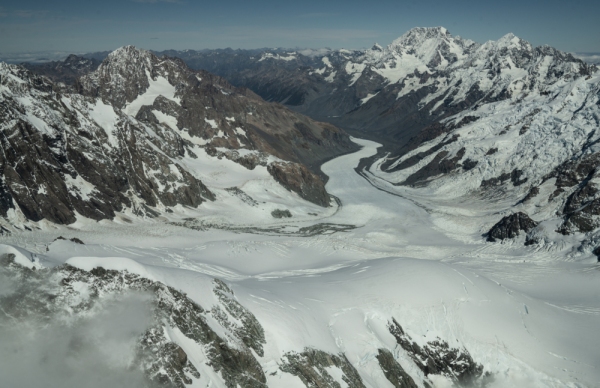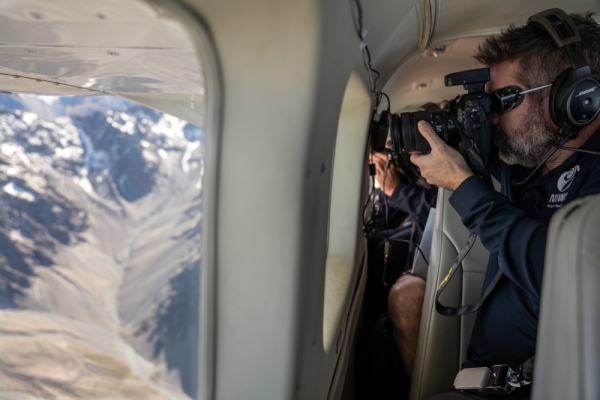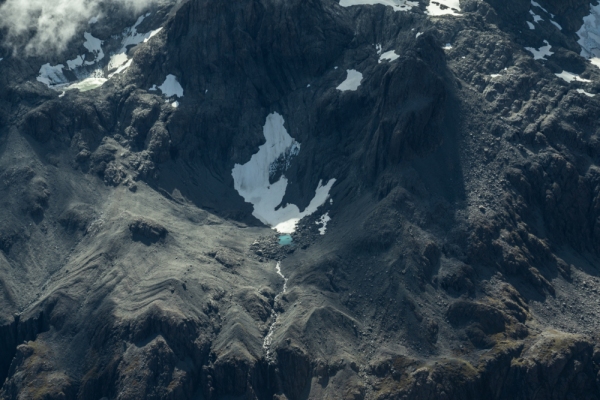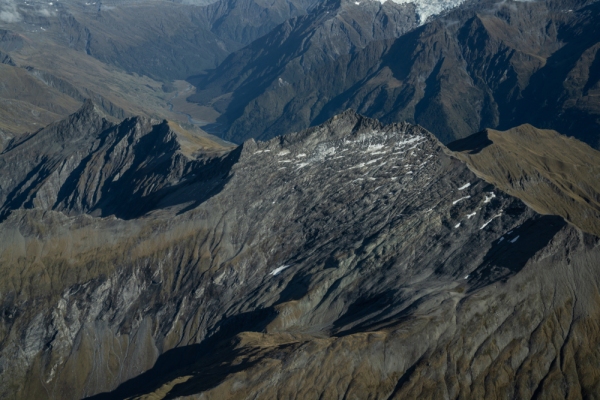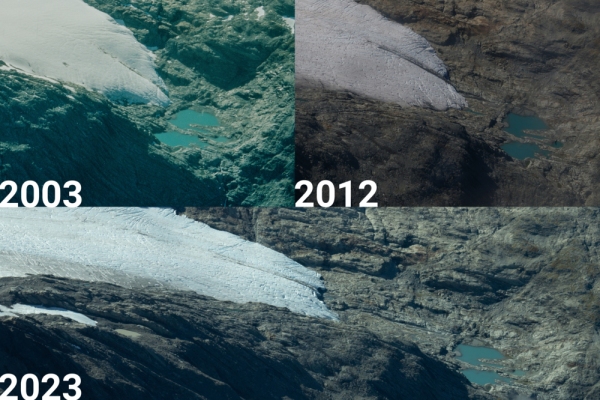NIWA’s annual end-of-summer snowline survey has revealed continued loss of snow and ice for New Zealand’s famous glaciers.
The 2023 survey was the 46th undertaken in a collaboration between NIWA, Victoria University of Wellington, and Department of Conservation. The long-standing project captures an aerial portrait of over 50 Southern Alps glaciers at a similar time each year to track how they change.
NIWA Principal Scientist Dr Andrew Lorrey, who coordinates the survey, says that while there is variability in the health of our glaciers, the trend of ice loss from previous years continues.
“With the South Island’s incredibly hot summer, we were expecting snowlines to be very high. The picture from this survey was a mixed bag. Snowlines were clearly visible across some glaciers while others had exposed ice from prior years laid bare up to the mountain top.”
The team spent nearly eight hours travelling back and forth across the Southern Alps. They took thousands of aerial photographs of glaciers of differing sizes and orientations to use in various national and international research projects, including one that builds 3D models that are used to compare snow and ice year-to-year.
“Since the snowline survey began, the global climate has warmed significantly. This year’s observations do not suggest a reprieve or a reversal of the ongoing ice loss trend. We’ve already had to abandon some of the index glaciers that we used to monitor because their snowlines and meaningful ice volume have completely disappeared. If current trends continue, we will see further contraction of snow and ice to only the highest places, leaving very little across the Southern Alps,” says Dr Lorrey.
“This trend is worrisome – not only do we risk losing the glaciers and our intimate relationship with them completely, but it will also affect the livelihoods of people who rely on these natural wonders for tourism, as well as flow on effects from decreased meltwater during periods of drought.”
Professor Andrew Mackintosh from Monash University was on the flight this year, and he says the Southern Alps glaciers have retracted markedly since he last joined the end of summer snowline flight.
“I was shocked by the state of the small low elevation glaciers, which have largely disappeared. Iconic glaciers such as Fox and Franz Josef have retreated markedly. The scale of retreat is confronting, even to a glaciologist. It emphasises the urgency of slowing climate change because the impacts are going to become increasingly costly and hard to avoid.”
The scientific results from this year’s glacier and snowline survey will be known later this year.

